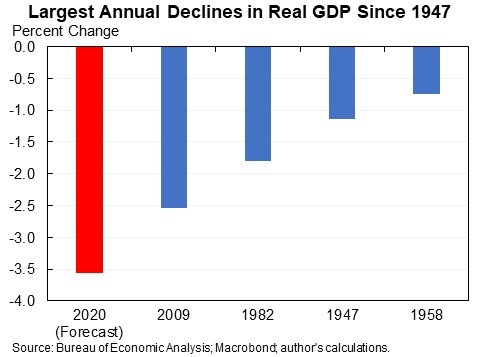
Some confusion about the term "pent up demand".
Short version, should distinguish btwn:
"Excess savings" (which we know households, in aggregate, have)
"Pent up demand" (a hypothesis that people will buy more this year to make up for the stuff they didn't buy last year).
Short version, should distinguish btwn:
"Excess savings" (which we know households, in aggregate, have)
"Pent up demand" (a hypothesis that people will buy more this year to make up for the stuff they didn't buy last year).
https://twitter.com/jasonfurman/status/1354496903099150342
The "excess savings" (stock) is because saving (flow) was higher last year due to higher disposable personal income (due to transfers) and lower consumption. This was $1.6T for 2020 and it is more now with the latest checks.
Note, is an aggregate, many households worse off.
Note, is an aggregate, many households worse off.
This "excess saving" *could* be used to satisfy "pent up demand" if everyone who skipped a travel vacation in 2020 took one that was twice as long in 2021 or ate out twice as much.
If this happened the saving rate would be lower-than-average in 2021 and could even be negative.
If this happened the saving rate would be lower-than-average in 2021 and could even be negative.
I am unsure about pent up demand because normally see it in durables and people bought *more* of them in 2020 than normal. In fact, some of those purchases might have pulled demand forward resulting in less spending in 2021 (e.g., you got the car in 2020 so no new car in 2021).
Pent up demand would have to express itself in services. Specifically it would have to mean people temporarily consume more services to make up for the ones they missed during the pandemic. Surely there will be some of that, but how much? Especially if pandemic not 100% solved.
Ultimately it comes down to what you expect the saving rate in 2021-H2 to be:
Lower than normal (i.e., pent up demand)
Normal (return to normal level, still would be extra growth)
Higher than normal (carryover of pandemic concerns.
I would be on normal to highish, but unsure.
Lower than normal (i.e., pent up demand)
Normal (return to normal level, still would be extra growth)
Higher than normal (carryover of pandemic concerns.
I would be on normal to highish, but unsure.
This was not a subtweet of Gerard M, he understands all of this, just made me realize not everyone else does.
• • •
Missing some Tweet in this thread? You can try to
force a refresh



